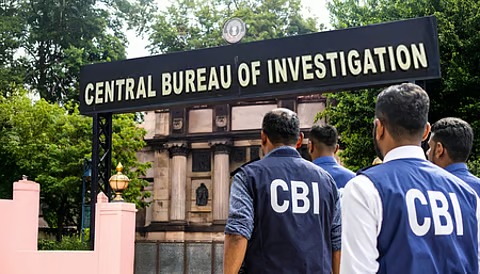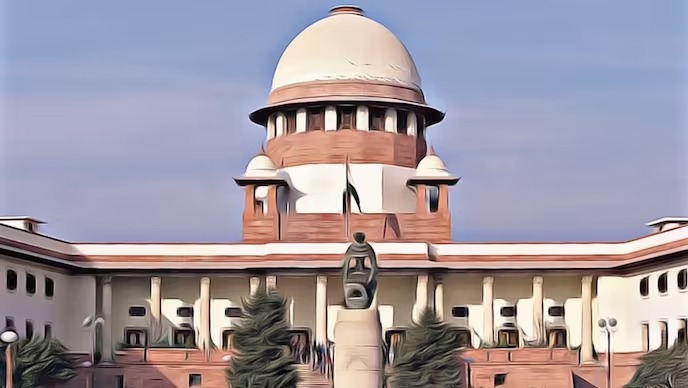Swatanter Kumar, J.@mdashSuit for joint possession and declaration was filed by Nirmal Kaur respondent herein against Niranjan Singh and others. The suit was filed on the allegations that late Karaka Singh was the owner of the suit land measuring about 30 bighas 9 biswas. He died after coining into force of the Hindu Succession Act, 1956. Upon his death, plaintiff and defendants No, 1 and 2 were entitled to the property on the plea of inheritance being legal heirs of the deceased, As defendants No. 1 and 2 were minor at that time, the suit was contested on the ground that the mutation recorded in the name of the plaintiff was illegal, null and void. According to the defendants, the plaintiff was trying to take unnecessary benefits of the illegal mutation entries recorded at the back of the contesting defendants. Further, according to the defendants, the plaintiff had no right in the property because she had already been married and residing in village Nathuwala Garbi Tehsil Moga. The right of inheritance was denied. The case was also contested by defendants No. 4 to 6 and 8 to 17 who claimed to be the bonafide purchaser for consideration and claimed protection of Section 41 of the Transfer of Property Act. These defendants claimed the sale through defendants 1 and 2 also alleged that Karaka Singh had died before 1956. The learned trial Court framed as many as 16 issues and issue No. 2, as framed by the trial Court, reads as under :-
"2. If issue No. 1 is proved, in affirmative whether the plaintiffs are the legal heirs of said Karaka Singh and entitled to inherit the suit land from him? OPP."
The parties had produced evidence in support of their case and finally the suit was dismissed by the learned trial Court vide its judgment and decree dated 24.4.1993. This judgment and decree was assailed in appeal being appeal No. 10 of 1993 before the first appellate court (Additional District Judge Bathinda). Alongwith appeal, an application under Order 41, Rule 27 of the CPC was also filed. It was stated that the plaintiff is an illiterate lady and inspite of her due diligence she was not able to produce the copy of the death certificate of Karaka Singh and non-production of certificate was as a result of bonafide error. This application was opposed by the respondents in the first appeal. Vide order dated 25.4.1997, the learned Additional District Judge, Bathinda allowed the application, while imposing costs upon the appellant-respondent herein and permitted production of the death certificate of Karaka Singh at the appellate stage. It is this order dated 25.4.1997 which has been assailed in the present revision petition.
2. Learned counsel appearing for the petitioners has contended that there was no occasion for the learned first appellate Court to allow such application. He further contended that P.W.1 and P.W.2 have given a different version about the date of death of Karaka Singh and as such the present respondent is trying to fill up lacuna in his evidence.
3. In support of his contention, he relied upon the judgment of this Court rendered in the case of Maghar Singh and Anr. v. Kewal Ram 1972 P.L.J. 323, Amar Singh etc. v. Ashok Kumar 1973 CLJ 687, and Smt. Chhotu v. Bijender Kumar 1994 107 P.L.R. 283 and also the judgment of the Apex Court in the case of
4. On the other hand, learned counsel appearing for the respondent relied upon
5. From the above narrated facts, it is clear that the parties are at issue with regard to the fact whether Karaka Singh had died prior to coming into force of the Hindu Succession Act or thereafter?
6. Parties led evidence to some extent on this plea. Death Certificate which is obviously most pertinent piece of evidence in regard to this fact was not produced by the plaintiff in the suit before the trial Court. The factum of the death of Karaka Singh is not disputed. The plaintiff averred that Karaka Singh had died prior to 1956 while according to the defendants he died after 1956.
7. In the application for leading additional evidence it has been specifically averred that inspite of due diligence of the plaintiff, the plaintiff was not able to produce the death certificate in respect of Karaka Singh from the office of Registrar, death and birth, Municipal Council, Bathinda. In addition to this, plea of bona fide error on the part of the applicant as well as her counsel was also taken up. Of course, there cannot be any hard and fast rule or a straight jacket formula which could be applied universally to all the cases where the question of permitting or declining additional, evidence in the suit or appeal arises. Every case must be determined on its own facts, keeping in view the circumstances, nature of document and seen in the light of the well enunciated principles of law. The judgments relied upon by the learned counsel for the petitioners on facts have no application to the present case. However, nature of the document itself is certainly not a determining factor for granting leave to produce additional evidence; but it is one of the main ingredients which ought to be taken into consideration by the court while deciding such application. If other ingredients are satisfied, the question relating to the genuinity of the document attains significance.
8. If the cases relied upon by the respondent, additional evidence was allowed keeping in view the fact and circumstances of those cases where the best evidence was available and the party despite exercise of due diligence was not able to or prevented from producing the documentary evidence. The sprit of the relevant provisions of the Code comes to the aid of the applicant, In a recent judgment pronounced by this Court in the case of Banwari v. Nagina, Civil Revision No. 4287 of 1997 decided on 6.2.1998, after discussing the principles in great detail the Court held as under :-
".... Primary distinction is between not to able to produce in spite of due diligence and waiver to lead evidence. ''Waiver'' is an intentional act or an act which can be reasonably construed from the record that the party intentionally failed to lead evidence which it ought to have. There is also no doubt to the fact that Order 18 Rule 2 C.P.C. has to be read in conjunction with the provisions of Order 18 Rule 17-A C.P.C. The legislative intent behind these two rules is that the party must lead evidence on all the issues onus of which is on him on the date fixed by the Court. Sub-rule 4 of Rule 2 of Order 18 still gave powers to the Court to permit a party to examine any witness at any stage for the reasons to be recorded in writing. This rule was introduced by amendment to the CPC in the year 1976 as well as Rule 17-A was also introduced by the same amendment. These amendments are obviously intended to give wider discretion to the Court for permitting additional evidence at any stage of the suit. Discretion must and has to be exercised on settled principles of law, the basic need being complete and effective adjudication between the parties in regard to the subject matter of the suit without offending any provision of the code and causing undue advantages to the applicant over the non-applicant. Earlier to the amendment Rule 17 of Order 18 gave jurisdiction to the Court to recall the witness already examined, but addition of these two provisions by way of amendment can no way be interpreted so as to give no benefit to the applicant if the facts and circumstances of a case and ends of justice demand.......Judicial conscious of the Court needs to be satisfied keeping in view the dual principle merging from Order 18 Rule 2(4) on the one hand and Order 18 Rule 17-A of C.P.C. on the other. In the case of
The concept of additional evidence has been given wider dimension in recent judgment of Hon''ble, Apex Court in
The production of the documentary evidence, genuiness and authenticity of which is patently, unimpeachable, Were permitted to fee produced by the Apex Court while deciding the Special Leave Petition. The production of death certificate, when the factum of death is admitted, attains significance as the date of death would be the crucial factor which would largely effect the rights of the parties. Some mistake on the part of the consel coupled with the fact that an aged illiterate lady inspite of her due diligence was not able to secure the death certificate, in the facts and circumstances of the present case, constitute sufficient ground for granting leave to the applicant to produce additional evidence. It cannot be construed against the applicant that she intended to waive her right to produce additional evidence. On the contrary, she attempted to prove her case and along with appeal an application for production of additional evidence was filed. There is some negligence on the part of the applicant but the negligence is not of the kind which should result in taking away the right of the applicant to prove her case. Dismissal of such application would certainly cause serious prejudice to the right available to the applicant in this procedural law. While, on the other hand, the non-applicant can certainly be compensated in terms of costs. It is also clear from the impugned order that the document would obviously be seen in the light of the evidence recorded earlier. The production of the document is also subject to the rights which are available to the present petitioners in law.
10. For the reasons aforestated, I find no merits in this revision petition as the order of the learned first appellate Court does not suffer from any jurisdictional or any other error apparent on the face of the record. The approach of the learned first Appellate Court cannot be termed as perverse in law. Accordingly, this revision petition is dismissed.
11. However, the respondent herein shall be liable to pay costs of Rs. 15,00/- instead of Rs. 300/- as imposed by the learned first Appellate Court. Subject to this modification, this revision is dismissed.

